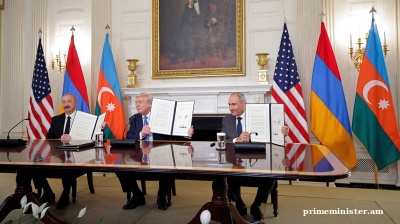In the sixteen months since Russia launched its full-scale invasion of Ukraine, the closest that residents of Moscow had been to danger were a series of drone strikes that resulted in superficial damage to buildings. On 24 June, as Wagner Group mercenaries made their way down the M4 motorway towards the capital, it seemed evident that this situation was about to change.
With panic beginning to set in, Moscow Mayor Sergey Sobyanin announced the implementation of anti-terrorist measures, enabling the authorities to search any building and restrict the movement of vehicles and pedestrians on streets. In the centre of Moscow security was heightened around government buildings and military facilities. The Russian Army deployed troops and equipment to the entrances of the city, where they erected roadblocks. Farther away from Moscow, roads were excavated to impede travel towards to the capital.
However, whilst the world watched, anticipating a military standoff at the edge of Moscow that could potentially result in a coup, millions of Muscovites continued with their lives. Following President Vladimir Putin's speech at 10 am, official information on state TV was scarce, thereby limiting minute-by-minute updates to only those inclined to spend their day on apps such as Telegram. While a few individuals keenly followed the news and remained home, the vast majority carried on with their day like a normal Saturday.
Being a weekend, many of the capital’s residents spent the day at their small summer home, commonly known as a "dacha," located in the countryside near the city. The potential of conflict in the capital led the city government to postpone the annual celebratory concert for high school graduates, prompting many to organise private gatherings instead. Others, apparently unaffected by the potential of a war in central Moscow, opted to go shopping, take leisurely strolls in pleasant summer weather and dine in the capital’s bars and restaurants.
On 24 June, as Wagner mercenaries were just hours away from the capital, bne IntelliNews spoke to numerous Muscovites to discover the mood of those in the Russian capital.
“I am incredibly scared,” Maria Vinogradova, a 26-year-old teacher explained. “I can’t stop looking at Telegram, waiting to see what will happen. I’ve been flicking through videos from Rostov all morning, and I even listened to some of the voice messages posted by [Wagner head Yevgeny] Prigozhin. But I can’t just pause my life to follow the news, I have a lot of things to do this weekend.”
Maria’s outlook was common in those who spoke to bne IntelliNews – fear of what will happen, but not enough to cancel the days plans.
“I’m going out tonight, the girls I was friends with in university are going to a bar together,” Marina Solovyeva, a 31-year-old accountant, explained. “The war has been going on for over a year now. There is nothing I can do about it. Of course I am scared. But I have no power, so why should I stop having fun and living my life?”
Maria wasn't the only one planning to party. Throughout the day, bars and nightclubs in Moscow were still advertising their offers, events and DJs for the night, including in the city's most luxurious and expensive area, Patriarch Ponds. Videos and images posted on Instagram from 24 June show revellers enjoying their weekend in the same way they would on any normal day – listening to loud music, enjoying an Aperol Spritz and dancing.
Others, however, were in less of a festive mood.
“I’m tired of our military failures in Ukraine, so I’m glad Prigozhin is fighting back,” 41-year-old Ruslan Lenkov said. “Of course, I don’t want even more Russians to die, but [Chief of the General Staff] Gerasimov and [Minister of Defence] Shoigu have done a terrible job. I hope Prigozhin gets to Moscow peacefully and convinces Putin that he is wrong.”
Like many other Russians, Ruslan was conscripted the army at age 18 for his compulsory military service. He hasn’t been sent to Ukraine – and has no intentions of signing up – believing that his children are a more important priority.
“I’ve been sat at my dacha all day following the news while with our [children] running around the garden. This could be the most important day in Russian history in the 21st century.”
A few hours later Prigozhin announced that he was calling it off, and would be returning to the front with his troops that had, in his words, halted “within 200 km of Moscow.” Moscow’s troops stood down, and barriers blocking entry to the city were opened up.
“Now the danger is over, I’ll be able to go out without feeling guilty and fearful,” Maria told bne IntelliNews, following up a few hours after the initial interview. “I suspect that many others in the city will be out celebrating too.”
News

Albania aims to revive domestic defence industry as it hosts top Nato officials
Albania ended domestic arms production after the collapse of its communist regime but is now working to restart the industry.

Russian team comes dead last in Hungary’s annual grave digging contest
In a surprise move, Hungary invited a Russian team to its annual grave digging competition. In an even bigger surprise the team from Novosibirsk came dead last.

Flydubai expands Kenya operations with new Nairobi flights and increased Mombasa services
Flydubai launches new Nairobi flights from October 15 and increases Mombasa to daily service, bringing total weekly Kenya flights to 11 as part of African expansion.

Small, medium-sized countries establish Future of Investment and Trade Partnership
UAE joins 13 countries in establishing Future of Investment and Trade Partnership to promote open trade, strengthen supply chains and address emerging economic challenges globally.



